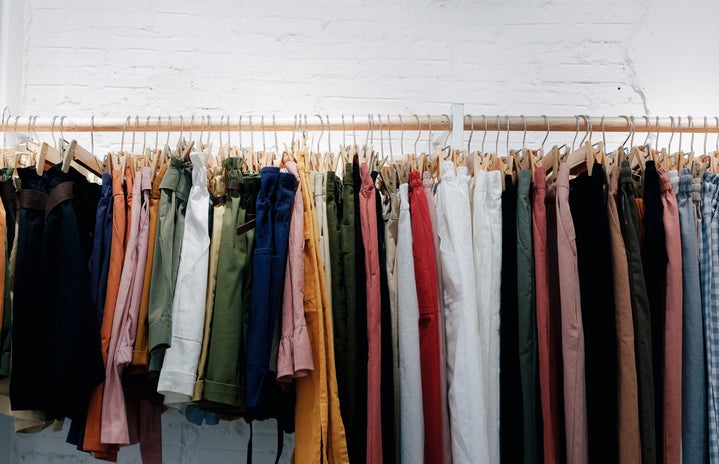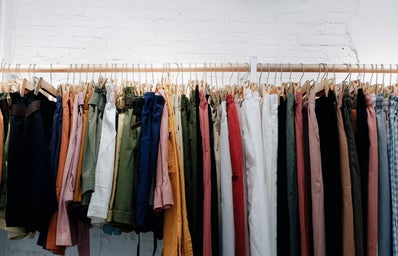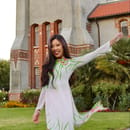Once a distant memory deemed cringe-worthy and gaudy, fashion from the 2000’s has come back in full force.
While popularly known as “Y2K,” the style that has been repopularized today is actually known as “McBling.” However, “Y2K” originally referred to the futuristic aesthetic of the late ‘90s in anticipation of the new, technological millennium. Together, these two aesthetics make up what so many people know and love as 2000’s fashion.
The style and its comeback is nowadays often attributed to white women and celebrities like Bella Hadid, but they were shaped and popularized by Black artists. Without Kimora Lee Simmons’s velour jumpsuits, Dapper Dan’s logomania and the colorful, blinged-out wardrobes of artists like Missy Elliott, Destiny’s Child, Aaliyah and Lil Kim, the aesthetic of the 2000’s would not have been possible.
The revival of this style was even championed by Black women. Despite fashion’s cyclical nature (the 20 year cycle), the 2000’s resurgence we see today started with Black creators like Taylor Crenshaw, also known as NicoleMilfie, the late Twitter tastemaker and major influencer. As noted by Brooklyn White for Girls United, Crenshaw’s coverage of 2000’s culture and fashion is largely attributed to re-popularizing Y2K/McBling style and introducing it.
This 2000’s renaissance brings some much needed nostalgia to those of us feeling pandemic-fatigue. This presents an exciting opportunity for style exploration and cultural discovery for those who were too young to experience the greatness of the 2000’s themselves.
However, we have to consider the issues that come with this resurgence.
As aforementioned, there is a major lack of acknowledgement and respect paid to the original creators of the 2000’s style. On top of this erasure, there are also racist double-standards in place that treat women of color and white women much differently. When Black women or other women of color adorn themselves in Y2K/McBling style, they are seen as tacky or “ghetto”, but when white women do the same, they are praised as trendy.
Unfortunately, it is also rampantly common for fast fashion companies to steal from smaller Black creators and businesses. In an article for Revelist, Marquaysa Battle breaks down multiple cases of Fashion Nova stealing designs and products from Black designers. One instance, with Destiney Bleu of d.bleu.dazzled went viral online. Upon Kylie Jenner posting a photo of herself donning Bleu’s drop-dead-gorgeous bedazzled tights, Fashion Nova quickly came out with a cheaper, but identical, version.
The issue with this kind of theft is two-fold. This infringes on the creative licenses of independent designers like Bleu while harming these smaller businesses financially and prevents them from receiving the recognition they deserve.
Moving forward, it is important that we understand where our fashion comes from and that we support the creators who cultivate it.
Consider buying from Black artists and designers as you delve into the world of 2000’s fashion:
1. Telfar for all your handbag needs
2. Farai London with halter tops and one-shoulder pieces galore
3. Sustainaheaux for eco-friendly, ruched goodness
4. Amalfii for all the minimalists and neutral tone lovers
5. Karousel Kouture to feel like a 2000’s princess
6. House of Aris for bold statement pieces
If you purchase any clothing items from the following businesses, be sure to tag us @HerCampusSJSU on Instagram, so we can check it out!



